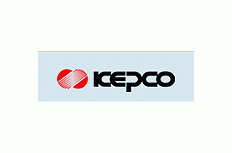Korean Consortium Companies
Gravis Energy Corp. owns 10% interest of the Korean Consortium Companies.
KEPCO

Korea Electric Power Corp. or KEPCO was established on July 1961 and became a state owned company since 1982. The company is the country's sole power distributor which serves13 million households. It generates 88% of Korea's power supply, with an installed capacity of more than 60,260 MW (primarily from thermal and nuclear plants). KEPCO also purchases capacity from independent power producers. Industrial demand accounts for 54% of the company's annual output. In response to deregulation, the company plans to divest more than half of its Korean-based generation assets while it builds an extensive power plant portfolio in other countries. The Korean government controls 51% of Korea Electric Power.
KHNP

Korea Hydro & Nuclear Power or KHNP is a subsidiary of the Korea Electric Power Corporation. It operates large nuclear and hydroelectric plants in South Korea, which are responsible for about 40% of the country's electric power supply. It was formally established in 2001, although KEPCO had opened its first nuclear plant at Kori in Busan in 1977. The first commercial operation of Kori nuclear #1 was held 1978.The company also operates in New York, Atlanta, Paris and Tokyo. As of 2008, it had about 7,500 employees and sales revenue in KRW 5.8 trillion (approximately USD 7.0 billion).
HANWHA

Hanwha, formerly known as Hankook Hwayak , is one of the largest conglomerates in Korea. Its main business is in chemicals and explosives, but it has also expanded into securities, insurance, home decor, telecom, retail, logistics, shipping, construction, and resort industries and various resorts in Pusan and Jeju. As of April, 2008, it is bidding to buy Daewoo Shipbuilding & Marine Engineering.
KNF

Korea Nuclear Fuel Corp. or KNF was established in 1982 for the purpose of supplying nuclear fuel to domestic facilities. It has been committed to technological innovation and the localization of nuclear fuel. KNF is now self-reliant in terms of reactor core design, fuel design and fuel production, including manufacturing of cladding tubes. At present, KNF supplies nuclear fuels to all Korean Nuclear Power Plants, while the nuclear power, forming 40% of the total electric power in Korea, feeds the growth engine for every sector in national industry.